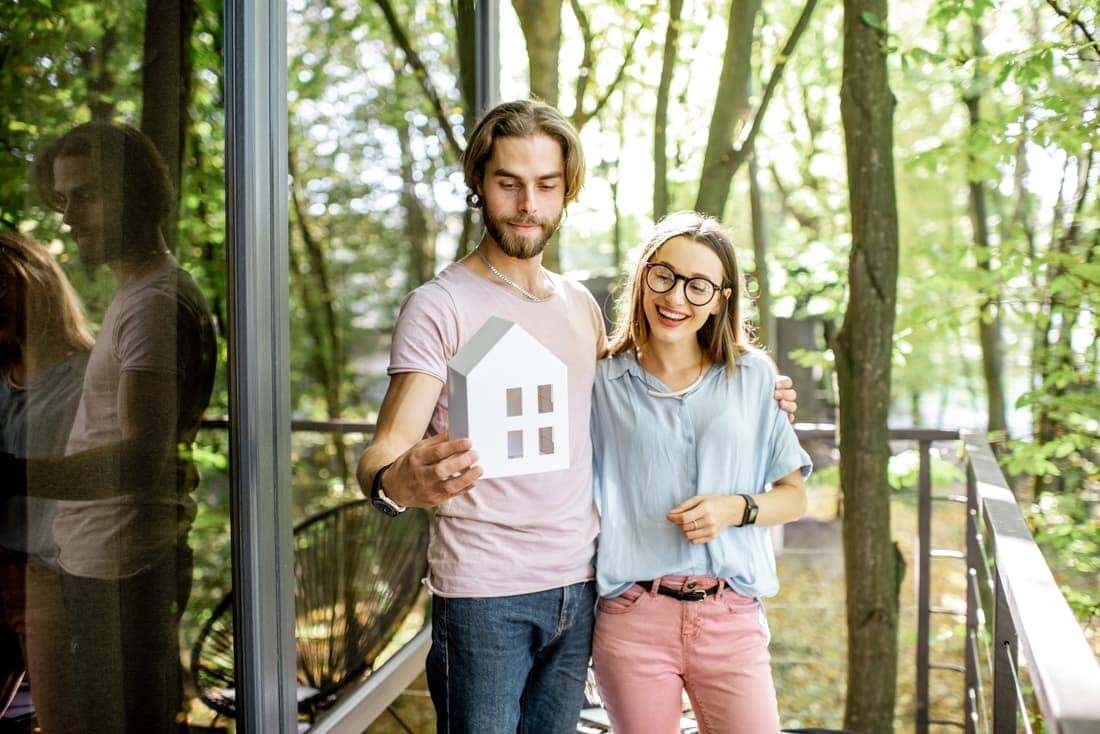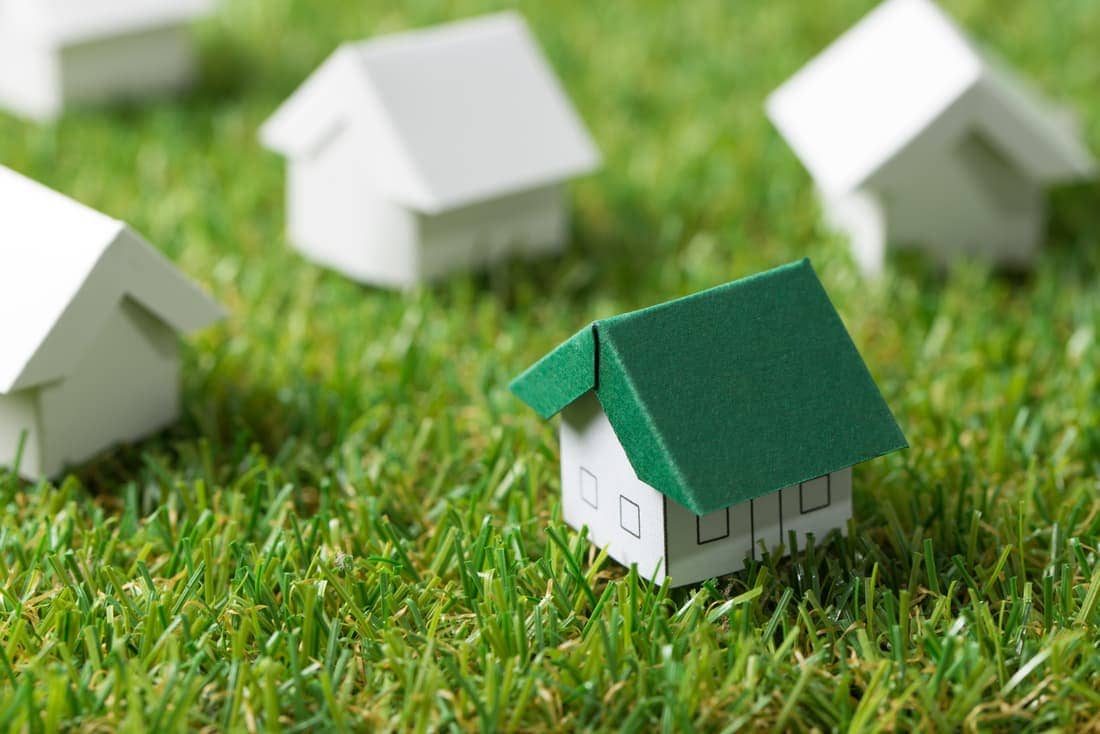Eco Homes: How Much Does It Cost to Build a Sustainable House?
October 9th, 2023 / Author: Zachariah PetersonBuilding your own house from the ground up is both an exciting and scary concept. Every house-building process requires meticulous planning and budgeting, and they will save you time, money, and mental wellbeing. That especially goes if you’re planning to build a green home because the eco-housing field is brim with innovation. You may find lots of its concepts intimidating and unfamiliar.
So, we’ve rounded up information that will let you know how much it costs to build a sustainable house and a few pieces of advice on how to build a sustainable house.
What Is a Sustainable House, Exactly?
The term “sustainable” gets thrown around so often that it became a staple in green-washing campaigns of brands from all parts of the industry. But in this context, a sustainable house is one built to reduce the negative environmental effect usually brought on by construction and during the house’s lifetime.
Characteristics and Benefits of a Sustainable House
A sustainable house can (and should) be:
- Environmentally sustainable - Such buildings aim to reduce their ecological footprint. That is accomplished by saving energy and water, reducing greenhouse gas emissions, and reducing waste.
- Socially sustainable - A sustainable house is more accommodating to people of limited mobility. It is constructed and designed to prevent injuries, and increase the sense of security of its occupants.
- Economically sustainable - To keep on thriving as a species, we need to focus on turning eco-friendly housing into affordable housing, too. That is why ultra-careful budgeting is required - both to reduce costs during construction and future renovations.
Overall, your sustainable home should be made out of materials that don’t harm the environment, energy-efficient, durable, flexible, and cheaper to run in the long term. Accomplish this, and you will enjoy the guilt-free benefits of a lower ecological footprint, reduced energy costs, and a home tailored to your family’s needs that will, naturally, change over the years.
Since we are pretty sure that many of you typed in “sustainable” and thought of “eco-friendly”, we will assume that environmental factors are the ones you are focusing on the most. That is why we will present costs for building zero-energy (ZE) houses.
What Makes Up the Cost of Your Sustainable Home?
Many people tend to overestimate the cost of green housing, especially when compared to regular housing. In 2007, the World Business Council for Sustainable Development released the results of a survey which showed that people thought that green construction features added 17% to the cost of the building, when the average marginal cost, in reality, was less than 2%.
So there is a lot of confusion surrounding the subject of the cost of building a sustainable house.
For starters, bear in mind what makes up the overall sale price of a house:
- Construction costs - 61%
- Finished lot costs - 18.5%
- Financing costs - 1.7%
- Overhead and general expenses - 4.9%
- Marketing costs - 1.0%
- Sales commission - 3.7%
- Builder profits - 9.1%
You are probably here because you’re looking for info on how to build a sustainable house to live in. So here’s what we will do to determine the cost to build a sustainable home - we will add up construction costs, finished lot costs, overhead and general expenses, and builder costs. They all round up to around 94% (93.5%) of the overall sale price. Keep in mind that even if you don’t want to live in the house you’re building, then you can still avoid many sales-related costs by selling on your own.
Before we dive into the numbers that we’ve found, keep in mind that there is almost always a negative cost to the environment when building a house. So even though you may have found eco-friendly materials to use, those materials still have to be transported via truck or another means of transport that uses gas). So don’t fret about not your house not being enough zero-energy. Just give it your best shot and that’s it. And oh, use the advice we’re gonna map out below.

Cost of Building a Sustainable Zero-Energy House
In 2019, the Rocky Mountain Institute issued an exciting report that shows that zero-energy housing is much more feasible. Across the US, building a sustainable house costs just 1-8% more than building to code.
The Census Bureau released a December 2021 report that showed the average sales price of a new house sold in November 2021 was $416,900. Circling back to the fact that 94% of the overall sale price is all about construction work, we are safe to assume that the average cost to build a house to code is about $391,886. And if you factor in that a zero-energy house is around 1-8% more than building to code, we arrive at our coveted numbers:
The average cost to build a sustainable house is between $395,804 and $423,237.
And remember how we mentioned reduced costs at the beginning of the article? We were thinking of the adage “You need to spend money to make money.” What we mean is that, after you invest more money into a sustainable house, you get a string of returns in the form of reduced energy costs.
A Breakdown of the Cost of Sustainable House Construction
As we have said, construction costs make up 61% of the overall cost of a home. So for zero-energy houses, the numbers it’ll take to construct them are $241,440-$258,175. A rough breakdown of construction costs for sustainable single-family housing looks like this:
Interior Finishes (25.4%)
Setting up your interior will take up most of your construction budget. This is the stage at which you will deal with insulation, drywall, flooring, installing lightning, etc. Opt for eco-friendly options such as recycled insulation or duct and air sealing technology, recyclable linoleum flooring, sustainably certified timber, eco-wood finishes, and energy-efficient appliances.
Cost: $61,326-$65,576
Framing (17.4%)
Another part of the construction stage to pay special attention to since it takes up a large portion of the budget. Framing includes roof, sheathing, and general metal and steel. Consider longer-lasting roof options, such as a metal roof.
Cost: $42,011-$44,922
Major System Rough-Ins (14.7%)
This is where plumbing and electrical systems come in (minus fixtures), as well as HVAC. Think of getting solar panels, a rainwater harvesting system, low-flow plumbing systems, low-energy HVAC lines, and other elements that will benefit you in the long run.
Cost: $35,492-$37952
Exterior Finishes (14.1%)
Exterior finishes are the stage where you deal with roofing, windows, doors, exterior wall finishes, et cetera. Install triple-pane windows, sustainable roofing materials, and an insulated garage door.
Cost: $34,043-$36,403
Foundations (11.8%)
This stage of construction tackles excavation, foundation, concrete, retaining walls, and backfill. For a more lasting and energy-efficient option, look into insulating slab foundation that includes a steel mesh that reinforces the 4-inch concrete slab foundation.
Cost: $28,490-$30,465
Final Steps and Other (6.8% and 3.8%)
These two stages deal with miscellaneous elements of house construction. From landscaping to patios, porches, and decks - you get a lot of chances to go green. For instance, in landscaping, opt to grow your garden with a permaculture mindset, and build your outdoor relaxation spaces with sustainable materials.
Cost: $25,593-$27,367
Site Work (6.2%)
Since site work includes, besides water and sewer fees inspections, permit fees, and impact fees, you may be eligible for some form of incentive. States and municipalities may be offering some suitable tax deductions and incentives for eco-conscious citizens. North Carolina State University has a great database of policies and incentives.
Cost: $14,969-$16,007
Where Can You Get the Money to Build Your Sustainable Zero-Energy Home?

All your meticulous budgeting is going to be in vain if you don’t have the money to build a sustainable house. That is where SleeveUp Homes steps in. Let us help you by buying your current house for the best possible price. That way, you can get the money you need to build a dream home. Contact us to find out our cash offer.
Please bear in mind that this article is intended to provide an average cost range for single-family housing. It is not a definitive guide on construction costs. Rather, it is a blueprint that will give you an idea of what you can expect once you set off to minimize your ecological footprint.
SELL
YOUR HOUSE
If you want to sell fast and are worried about how long the traditional process takes, and the commission and fees involved, consider working with SleeveUp Homes.





 view all blogs by this author
view all blogs by this author Cesar Gomez (85 blogs)
Cesar Gomez (85 blogs)